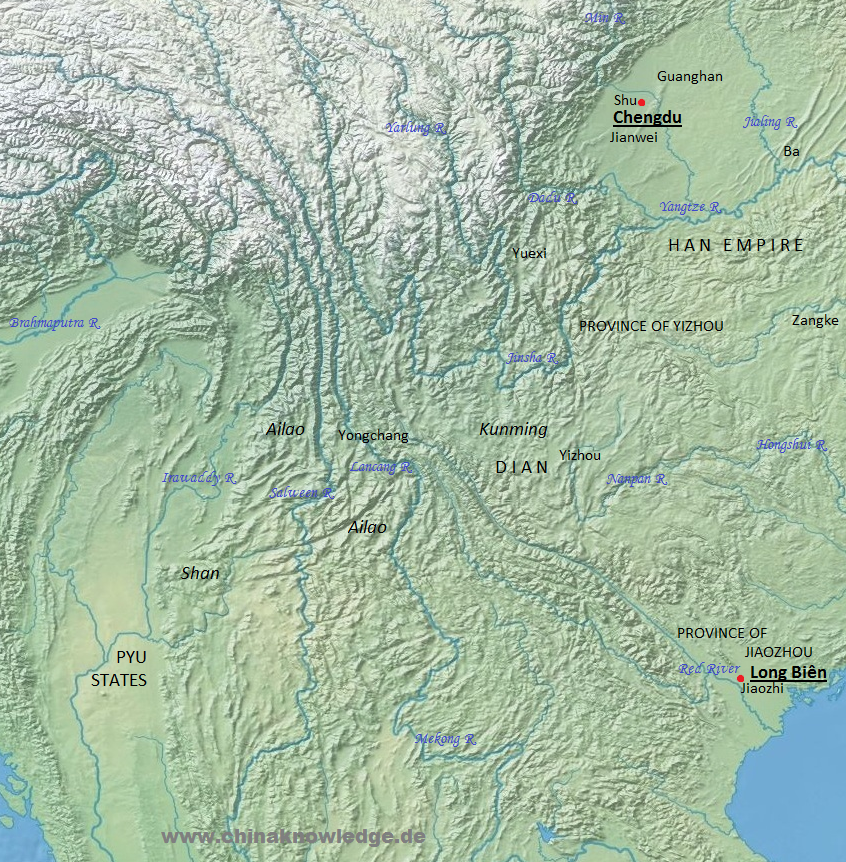The kingdom of Pyu (Chinese Piaoguo 驃國) was a state in the valley of the River Irawaddy in modern Myanmar. This state flourished between the 3rd and the 9th century CE. It was founded by the Burmese people of the Pyu and had a capital called in Chinese sources Shilichadaluo 室利差呾羅 (near modern Pimiao 卑謬).
 |
Southwest China and its surroundings between c. 200 BCE and 200 CE. Based on Tan Qixiang 譚其驤, ed. (1995), Zhongguo lishi ditu ji 中國歷史地圖集, Vol. 2, Qin, Xihan, Donghan shiqi 秦西漢東漢時期 (Beijing: Zhongguo ditu chubanshe, 1996). Tribes in italics, commanderies in normal letters. |
Early Chinese sources do not say a lot about the society of the state of Pyu, only that there was a clear social hierarchy. Tang period 唐 (618-907) sources speak of the round shape of the brick wall of the capital, which had allegedly a circumference of 160 li (80 kms), and 12 gates. The people believed in Buddhism, and there were more than a hundred Buddhist temples to be found in the capital city. The people lived of rice and sugar cane and used a kind of coin called dengjiatuo 登伽陀.
Between 613 and 718 the country was reigned by a royal dynasty called Piqiluoma 毗訖羅摩. When leaving his palace the king was carried in a golden reclining sedan chair, but for longer travels he used to ride on an elephant. He disposed of a harem of several hundred wives that followed him on his tours. The kingdom of Pyu reigned over 18 vassals sttes in the region. Its people consisted of almost 300 different tribes, some of which inhabited the 9 cities of the kingdom. There were merchant relations with a lot of countries in Southern and Southeast Asia, as well as with China.
In 802 Prince Shunantuo 舒難陀 visited the Tang court in Chang'an 長安 (modern Xi'an 西安, Shaanxi) and brought with him a troop of musicians that were highly welcomed in the Chinese capital. They are even mentioned in a poem of the famous Bai Juyi 白居易. Emperor Dezong 唐德宗 (r. 779-804) bestowed the prince the honorific title of chamberlain for ceremonials (taichang qing 太常卿). In 832 the capital of Pyu was devastated by the kingdom of Nanzhao 南詔, and the state disintegrated.